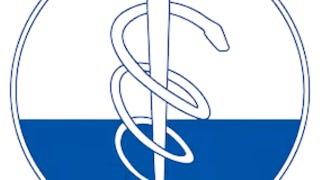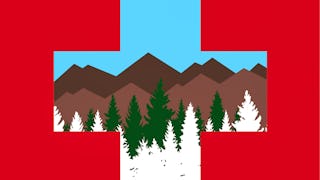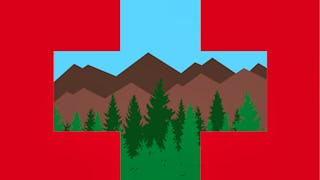Dans ce cours, vous développerez les connaissances et les compétences nécessaires pour évaluer et stabiliser certains types de patients en vue de leur transport. A la fin de ce cours, vous serez capable de : (1) Identifier les signes et symptômes associés à un patient en état de choc, décrire les principales catégories d'état de choc, évaluer un patient présentant des signes d'état de choc et formuler un plan de traitement pour stabiliser le patient en vue de son transport, (2) Identifier un patient en arrêt cardiaque et décrire les composantes d'une RCP performante, y compris la mise en place d'un DEA, les composantes d'une compression thoracique de qualité et les options d'oxygénation, (3) Identifier un patient sous l'influence d'une drogue ou d'une ingestion toxicologique, évaluer un patient présentant une ingestion potentielle ou connue, (4) Identifier les symptômes associés aux urgences environnementales les plus courantes, y compris l'hypothermie, l'hyperthermie, la foudre et la noyade, évaluer les patients présentant une urgence environnementale et décrire le traitement initial et la stabilisation en vue du transport et (5) Comprendre l'histoire de votre patient et réfléchir de manière critique aux plaintes et aux symptômes associés au système gastro-intestinal, au système rénal et au système reproductif.

Profitez d'une croissance illimitée avec un an de Coursera Plus pour 199 $ (régulièrement 399 $). Économisez maintenant.

Urgences médicales : RCP, toxicologie, et nature sauvage
Ce cours fait partie de Spécialisation Devenir ambulancier
Enseigné en Français (doublage IA)



Instructeurs : Angela Wright, MD
33 957 déjà inscrits
Inclus avec
(534 avis)
Compétences que vous acquerrez
- Catégorie : Défense des intérêts des patients
- Catégorie : Gestion des voies respiratoires
- Catégorie : Médecine d'urgence
- Catégorie : Soins centrés sur le patient
- Catégorie : Réanimation cardio-pulmonaire (RCP)
- Catégorie : Évaluation des patients
- Catégorie : Pharmacologie
- Catégorie : Premiers secours
- Catégorie : Services médicaux d'urgence
- Catégorie : Néphrologie
- Catégorie : Urgences et soins intensifs
- Catégorie : Évaluation clinique
- Catégorie : Urgence médicale
- Catégorie : Soutien à la vie
- Catégorie : Soins aigus
- Catégorie : Pharmacothérapie
- Catégorie : Cardiologie
- Catégorie : Défibrillateur externe automatisé
- Catégorie : Santé mentale et comportementale
- Catégorie : Physiologie
Détails à connaître

Ajouter à votre profil LinkedIn
4 devoirs
Découvrez comment les employés des entreprises prestigieuses maîtrisent des compétences recherchées

Élaborez votre expertise du sujet
- Apprenez de nouveaux concepts auprès d'experts du secteur
- Acquérez une compréhension de base d'un sujet ou d'un outil
- Développez des compétences professionnelles avec des projets pratiques
- Obtenez un certificat professionnel partageable

Il y a 4 modules dans ce cours
Dans ce module, vous découvrirez les états de choc et les principes de la réanimation. Contrairement à l'usage courant du mot choc qui fait référence à un état mental de dépassement ou d'alarme, le choc est un état de crise à l'intérieur du corps, impliquant un ou plusieurs systèmes organiques. S'il n'est pas corrigé, le choc peut entraîner la mort. L'autre sujet, la réanimation, couvrira les principes du traitement et de l'inversion de l'état de choc et, surtout, le traitement de l'arrêt cardiaque. Nous discuterons des dernières recherches scientifiques et des meilleures pratiques en matière de réanimation en cas d'arrêt cardiaque.
Inclus
15 vidéos7 lectures1 devoir
Dans ce module, nous allons nous intéresser aux empoisonnements, ou ingestions toxicologiques. Un domaine entier de la médecine est consacré à l'étude de l'impact sur notre corps des choses que nous ingérons, généralement par accident ou dans une tentative d'automutilation. Ce domaine s'appelle la toxicologie. Un poison est une substance qui nuit à la santé ou provoque la mort. Une toxine est un médicament ou une substance toxique pour l'homme, qui provoque un effet indésirable, voire la mort. Un antidote est une substance qui neutralise l'effet du poison ou de la toxine. Après avoir compris la terminologie de base, nous pouvons explorer plus avant les poisons les plus courants que vous rencontrerez sur le terrain, leurs effets sur l'organisme et la manière dont nous traitons ces patients.
Inclus
11 vidéos4 lectures1 devoir
Dans ce module, vous apprendrez comment les urgences environnementales sont provoquées lorsque les fonctions physiologiques du corps sont perturbées par l'environnement naturel du patient. De nombreuses fonctions de l'organisme ne fonctionnent correctement qu'à une température normale, de sorte qu'un changement de température du corps peut entraîner leur défaillance. Parmi les exemples d'urgences environnementales, on peut citer les changements de température (froid ou chaud), les maladies et les blessures causées par d'autres animaux, les maladies de haute altitude et les blessures ou maladies liées à l'eau, comme la noyade.
Inclus
9 vidéos4 lectures1 devoir
Dans ce module, nous aborderons des sujets qu'un secouriste peut rencontrer et qui n'entrent pas dans les sections précédentes. Les "autres" choses importantes qui peuvent causer des problèmes aux patients. Le rôle d'un ambulancier est de défendre les intérêts de votre patient afin de lui fournir les meilleurs soins possibles. Pour ce faire, il faut prendre le temps de comprendre l'histoire de votre patient et de réfléchir de manière critique à son problème, surtout s'il est difficile à diagnostiquer. Nous nous concentrerons également sur les problèmes de l'abdomen impliquant le système gastro-intestinal, le système rénal et le système reproducteur.
Inclus
10 vidéos6 lectures1 devoir
Obtenez un certificat professionnel
Ajoutez ce titre à votre profil LinkedIn, à votre curriculum vitae ou à votre CV. Partagez-le sur les médias sociaux et dans votre évaluation des performances.
Instructeurs

Offert par
En savoir plus sur Soins aux patients
 Statut : Essai gratuit
Statut : Essai gratuitUniversity of Colorado System
 Statut : Essai gratuit
Statut : Essai gratuitUniversity of Colorado System
 Statut : Essai gratuit
Statut : Essai gratuitUniversity of Colorado System
 Statut : Essai gratuit
Statut : Essai gratuitUniversity of Colorado System
Pour quelles raisons les étudiants sur Coursera nous choisissent-ils pour leur carrière ?




Avis des étudiants
534 avis
- 5 stars
82,42 %
- 4 stars
14,20 %
- 3 stars
2,24 %
- 2 stars
0,18 %
- 1 star
0,93 %
Affichage de 3 sur 534
Révisé le 31 mai 2020
It was very useful and informative. The pattern of assignment and evaluation of that was up to the point. And teaching was super
Révisé le 27 août 2020
Very helpful course on diagnosis & management on certain diseases. Content is basic but the explanation is thorough and there are also supplementary readings. The quizzes can be quite difficult.
Révisé le 2 juil. 2020
Excellent! Learned more than I could ever expect, awesome presentations by speakers too !
Foire Aux Questions
AVIS IMPORTANT : La spécialisation actuelle "Become an EMT" n'est plus éligible au NREMT
À compter d'aujourd'hui, la version actuelle de la spécialisation "Become an EMT" ne répond PAS aux exigences de certification du National Registry of Emergency Medical Technicians (NREMT) et ne peut pas être utilisée pour se qualifier pour l'examen du NREMT.
Pourquoi ce changement ?
La spécialisation actuelle ne s'aligne plus sur les nouvelles normes de certification mises en œuvre par le NREMT en 2024. Bien que la spécialisation existante "Devenir un EMT" reste précieuse pour ceux qui souhaitent en apprendre davantage sur les services médicaux d'urgence, elle ne peut pas être utilisée à des fins de certification NREMT.
Nouveau cours éligible au NREMT au printemps 2026
Une spécialisation "Become an EMT" entièrement mise à jour qui répondra à toutes les exigences actuelles du NREMT sera disponible sur Coursera au printemps 2026.
Exigences pour la certification NREMT avec le nouveau cours :
1. Réussir le contenu du cours en ligne
ET
2. Réussite d'un cours de compétences pratiques dispensé par un centre de formation EMT reconnu
Les deux composantes doivent être complétées pour être éligible à l'examen et à la certification du NREMT.
Apprenants actuellement inscrits
Si vous êtes actuellement inscrit à la spécialisation "Devenir un EMT" et que vous avez besoin de la certification NREMT, nous vous suggérons de mettre en pause votre participation jusqu'au lancement de la nouvelle spécialisation au printemps 2026. Ce que vous avez appris vous aidera à traverser le nouveau cours plus rapidement et plus facilement. Cependant, une participation partielle au cours existant ne se traduira pas par une participation partielle au nouveau cours.
Envoyez vos questions à : uchmedic@uchealth.org.
Candidats à l'apprentissage
Si vous envisagez de vous inscrire à la Spécialisation "Devenir EMT" :
-La version actuelle de la Spécialisation n'est pas adaptée àla certification NREMT
-Il est recommandé d'attendre la nouvelle version éligible au NREMT qui sera lancée au printemps 2026
Le cours actuel est utile pour :
- Formation et connaissancesgénérales en matière de SMU
- Exploration decarrière dans les services médicaux d'urgence
- Formationcontinue pour les professionnels de santé actuels
Envoyez vos questions àto:uchmedic@uchealth.org.
Pour accéder aux supports de cours, aux devoirs et pour obtenir un certificat, vous devez acheter l'expérience de certificat lorsque vous vous inscrivez à un cours. Vous pouvez essayer un essai gratuit ou demander une aide financière. Le cours peut proposer l'option "Cours complet, pas de certificat". Cette option vous permet de consulter tous les supports de cours, de soumettre les évaluations requises et d'obtenir une note finale. Cela signifie également que vous ne pourrez pas acheter un certificat d'expérience.
Lorsque vous vous inscrivez au cours, vous avez accès à tous les cours de la spécialisation et vous obtenez un certificat lorsque vous terminez le travail. Votre certificat électronique sera ajouté à votre page Réalisations - de là, vous pouvez imprimer votre certificat ou l'ajouter à votre profil LinkedIn.
Plus de questions
Aide financière disponible,






